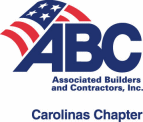
Danielle Rodabaugh of SuretyBonds.com
I’m thrilled to welcome my first guest blogger, Danielle Rodabaugh, to N.C. Construction Law, Policy & News. Danielle is chief editor at SuretyBonds.com, a nationwide surety provider that issues construction bonds to contractors every day. As a part of the company’s educational outreach program, Danielle writes articles to help construction professionals understand the intricacies of surety bonds and the underwriting process. You can keep up with Danielle on Google+.
Whether you’re new to the construction industry or have decades of experience under your belt, you probably have some questions about surety bond acquisition and what goes into the underwriting process. Before we go much further, though, I’d like to review the basics of how surety bonds work and why they’re required.
Surety bonds ensure project completion.
When surety bonds are used on projects, they’re known as “contract bonds” or “construction bonds.” Project owners require them to ensure construction professionals work according to terms laid out in contracts.
There are a number of different contract bond types. Some of the most common ones are license bonds, bid bonds, performance bonds and payment bonds. No matter what kind of surety bond you need, it will function as a legally enforceable contract that binds together three parties:
- The individual contractor or contracting firm that buys the bond is the principal.
- The project owner, which is typically a state agency, that requires the contractor to be bonded is the obligee.
- The insurance company that issues the bond bond is the surety.
If a contractor fails to fulfill the bond’s terms, then the obligee can make a claim on the bond’s sum to gain reparation for any damages or financial losses.
Continue reading →










